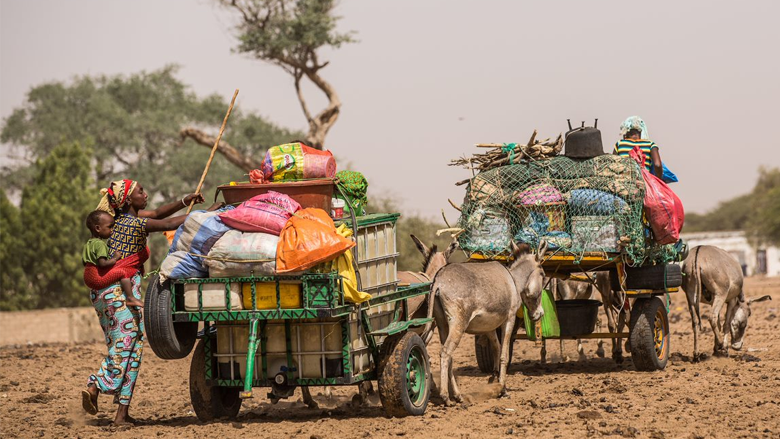More than 20 million herders across the Sahel region move their cattle, searching for water and pastureland. This is because 75 percent of the Sahel is too dry to allow livestock herders to remain in one place.
Each year, in early November, the first signs of drought appear—rivers start to dry up and pastures become scarce. So many families, often in small groups, begin a months-long journey in search of water and pastureland.
Today, however, the pastoralists face a new problem that they cannot overcome alone—climate change. Their traditional way of life is in danger. The rainy seasons are growing shorter, and the dry seasons are longer, sometimes lasting up to nine months. The drought in 2010 was particularly severe. Niger lost 4.8 million head of cattle, roughly 25 percent of the herd, representing a loss of more than $700 million for the country’s economy.
Water has become increasingly scarce, and farmers expand their fields as the population grows, encroaching on pastoral regions and transhumance corridors. This situation has seriously disrupted traditional herd management methods, resulting in more frequent and potentially more severe conflicts.
The IDA-financed Regional Sahel Pastoralism Support Project (PRAPS) supports countries of the Sahel—Burkina Faso, Chad, Mali, Mauritania, Niger, and Senegal. It helps to protect pastoral systems by improving resource management and animal health, facilitating access to markets, diversifying sources of income for pastoral households, and managing conflicts. The project established infrastructure around water points, pasture for the livestock, vaccination stations, livestock markets, and fodder storage.

